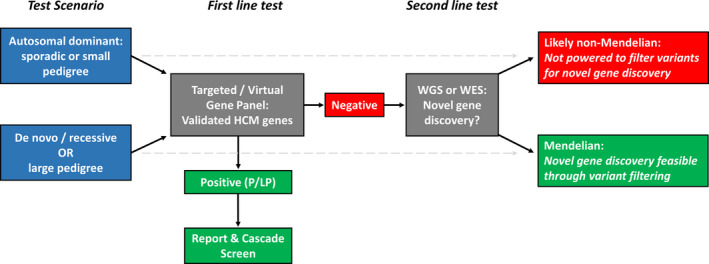Figure 3. Proposal for a tiered approach to genetic testing in HCM. Initial testing is restricted to validated HCM genes using either a targeted gene panel or a virtual panel by focused analysis of WGS or WES data.

The latter allows for reanalysis of genes subsequently linked to HCM, and WGS can detect additional variant classes including CNVs and deep intronic splice variants, though sequencing coverage is likely to be inferior to targeted panel sequencing. In the case of negative results, variant prioritization in the research setting can aid identification of the causative variant, directly translating into a diagnostic finding. The likelihood of detecting variation in novel genes with broader WGS/WES analysis depends on the profile of the patient and family being tested. In general, large pedigrees informative for segregation and trios (affected child with unaffected parents, indicating likely de novo variant occurrence or recessive inheritance) can enable filtering to a manageably small number of potentially causative variants for detailed evaluation. CNV, copy number variant; HCM, hypertrophic cardiomyopathy; WES, whole‐exome sequencing; and WGS, whole‐genome sequencing.
